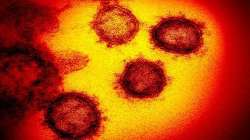Novel autoantibody sparks inflammation, blood clots in Covid patients
US researchers have discovered a functional autoantibody in Covid-19 patients that contributes to the disease's development and the "firestorm" of blood clots and inflammation it induces.

US researchers have discovered a functional autoantibody in Covid-19 patients that contributes to the disease's development and the "firestorm" of blood clots and inflammation it induces.
A growing body of studies suggests Covid-19 emulates many aspects of systemic auto-immune disorders, including the release of a flurry of overactive immune cells that produce toxic webs of proteins and DNA called neutrophil extracellular traps, or NETs.
For this study, the team analysed serum from over 300 hospitalised Covid patients, searching for a novel autoantibody that shields the toxic NETs from being destroyed and produces a lasting noxious effect in a patient's body.
The results, published in JCI Insight, reveal markedly elevated levels of the anti-NET antibodies in many of the participants. Those with higher levels of the auto-antibodies were more likely to develop severe Covid-19 symptoms.
"We see a slew of different antibodies produced in Covid-19 patients, and now we discovered another clinically significant one that is likely contributing to severe Covid," said lead author Yu (Ray) Zuo, a rheumatologist at Michigan Medicine, University of Michigan.
"They feed into the inflammatory storm that we're seeing in the most serious cases of viral infection," Zuo added.
Researchers generated NETs in the lab and incubated them with Covid patient serum. They found the serum from patients with higher levels of anti-NET antibodies struggled to degrade the toxic traps.
The team also spiked healthy serum with anti-NETs purified from the infected patients. While a healthy person's serum should completely disintegrate the extracellular traps, the purified anti-NET antibodies significantly hindered the process.
"We knew that people with severe forms of Covid have higher amounts of these neutrophil extracellular traps, which amplify inflammation and promote blood clot formation," said Jason Knight, Associate Professor of rheumatology at Michigan Medicine.
"We've now found that this process is exacerbated by the anti-NET antibodies, which disrupt our body's immune homeostasis during Covid-19 infection," Knight said.
However, how Covid-19 manages to trigger the production of a variety of autoantibodies, including anti-NETs, remains unknown.
Further study of the virus' autoimmune aspects, Zuo noted, will not only lead to better understanding of the disease, but will also likely shed light onto the origins of autoimmune diseases.
ALSO READ | 3D 'assembloid' shows how SARS-CoV-2 infects brain cells
ALSO READ | Now a face mask that detects Covid-19 like RT-PCR tests